Hayden Center – Opioid Use Disorders, Clinical Insights and Effective Therapeutic Approaches
$200.00 Original price was: $200.00.$75.05Current price is: $75.05.
But you know what lies behind the headlines. People. People whose lives have been devastated. Jail time and lost jobs.
Hayden Center – Opioid Use Disorders, Clinical Insights and Effective Therapeutic Approaches
A national emergency … the worst drug crisis in U.S. history. The grim news surrounding opioid abuse continues to make headlines.
But you know what lies behind the headlines. People. People whose lives have been devastated. Jail time and lost jobs. Shattered families. Early deaths and grieving families. People like you and I, prescribed a highly addictive substance to treat their chronic pain or after a minor medical procedure, who find themselves in a dangerous free fall that leaves their lives in ruin. People who walk through your door looking to you for help.
Yet opioid disorders are substantially different from other addictions. Drug-driven brain change and physical dependence, coupled with a substance that perilously slows breathing and heart rate have created a deadly epidemic of unprecedented proportions. Super potent synthetics like Fentanyl are flowing into our cities and towns; a cheap but deadly substitute putting the lives of opioid abusers at risk. And many individuals with opioid use disorders have at least one co-occurring mental health problem that must be addressed in the effort to achieve and sustain recovery.
A one-size fits all approach to addiction simply won’t suffice.
Watch this critical recording and get the tools you need to end the suffering and bring hope and healing to your clients!
Key Benefits of this course:
- Explore the neuroscience behind the unique risks of opioid abuse
- Know the signs – when pain management turns into addiction
- Tailored strategies to overcome the barriers to opioid use disorder treatment
- Psychotherapeutic approaches grounded in evidence-based modalities
- Screening tools and treatment strategies for co-occurring disorders
- Details on how Medication Assisted Treatment can be combined with psychotherapy
- Characterize how the addictive properties and physical impacts of opioids on the body increase the risk for deadly overdose, and specify how this information informs treatment approach.
- Detail how self-stigma becomes a barrier to treatment, and articulate how clinicians can employ techniques to combat this obstacle.
- Establish how Contingency Management can be used in therapy to increase recovering opioid addicts’ willingness to participate in treatment.
- Communicate how clinicians can assess ongoing opioid use treatment to evaluate effectiveness, and outline steps that can be taken to modify treatment when needed.
- Articulate how screening tools can be used with opioid addicted clients to identify co-occurring disorders that can negatively impact treatment outcomes.
- Examine the latest research regarding the efficacy of Medication Assisted Treatment approaches with opioid abusing clients.
Would you like to receive Hayden Center – Opioid Use Disorders, Clinical Insights and Effective Therapeutic Approaches ?
The Unique Nature of Opioid Addiction
- Distinct risks of opioid abuse
- What neuroscience and biology reveal about opioid use
- Brain centers – the relationship between brain centers and pain
- The pleasure factor and the addicted brain
- Differences from other substance use disorders
- How chronic opioid use changes the brain
Overcome The “Why Try” Effect and Other Barriers to Opioid Use Disorder Treatment
- Separation of the mental health and addiction treatment systems
- Detox vs. maintenance treatment
- Availability and affordability
- Overcoming social stigma
- Combatting the “why try” effect, self-stigma, and shame
Psychotherapeutic Approaches for Treating Opioid Use Disorder
- Signs of opioid abuse and questions to ask
- CBT – recent studies
- Motivational Interviewing and commitment to change
- Dialectical Behavior Therapy – confidence and coping skills
- Acceptance and Commitment Therapy
- Family counseling
- How Contingency Management can be used with opioid use disorders
- Adjunct approaches
- Assess and modify treatment to ensure effectiveness
- Research limitations and risks of psychotherapeutic approaches
Identify and Treat Co-Occurring Disorders
- The impact of co-occurring disorders on treatment outcomes
- Primary disorders vs. substance-induced co-occurring disorders
- Screening procedures and tools
- Questions to ask
- Safety issues
- Recording results
- Trauma history
- What to do about chronic pain?
- Treatment considerations and planning
- Validity in co-occurring treatment research
- Risks associated with co-occurring treatment options
Medication Assisted Treatment (MAT): How the Once Controversial Approach of Treating Addiction with Drugs Can Help Recovery
- Research and the latest findings
- Methadone, buprenorphine, naltrexone
- Benefits, drawbacks and risks of MAT
- Role of the behavioral health clinician in MAT
Be the first to review “Hayden Center – Opioid Use Disorders, Clinical Insights and Effective Therapeutic Approaches” Cancel reply
Related products
NLP - Self-help - Dating
Richard Bandler – 30 Courses Collection | Happy Life, Neuro Hypnotic, Persuasion, …
NLP - Self-help - Dating
Deepak Chopra & Oprah Winfrey – 21 Day Meditation Experience (19 Volumes Collection)
NLP - Self-help - Dating
NLP - Self-help - Dating
NLP - Self-help - Dating
Sal Buscemi (Dandrew Media) – Institutional Intelligence: Sales Desk Scripts
NLP - Self-help - Dating
NLP - Self-help - Dating
Dr. Bradley Nelson – The Body Code System 2.0 (Complete) + BONUS
NLP - Self-help - Dating
Complete HypnoThoughts Live 2016 Conference (Audio Recordings Package)

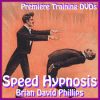

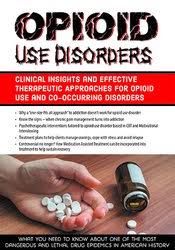

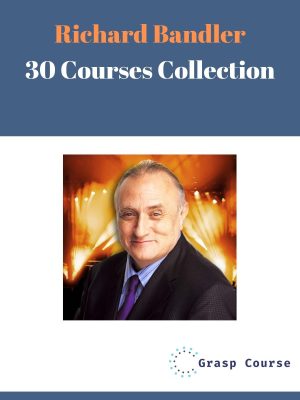

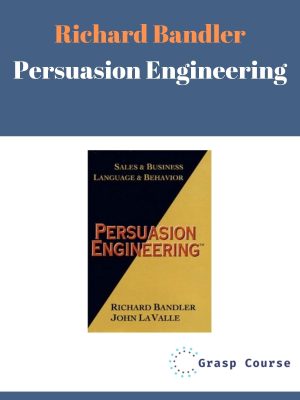
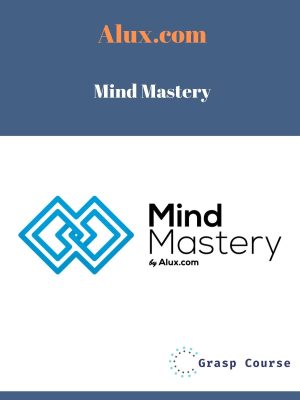

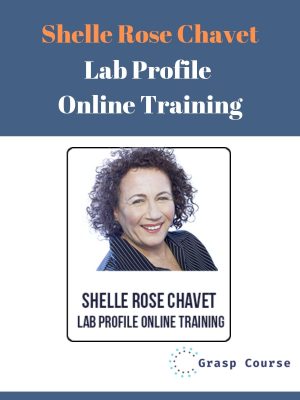
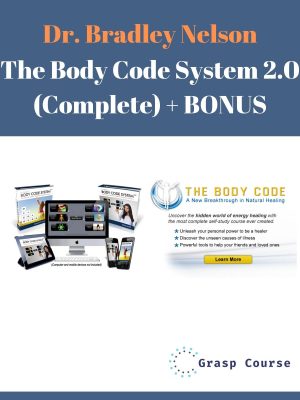
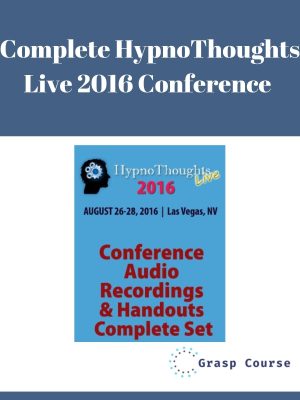
Reviews
There are no reviews yet.